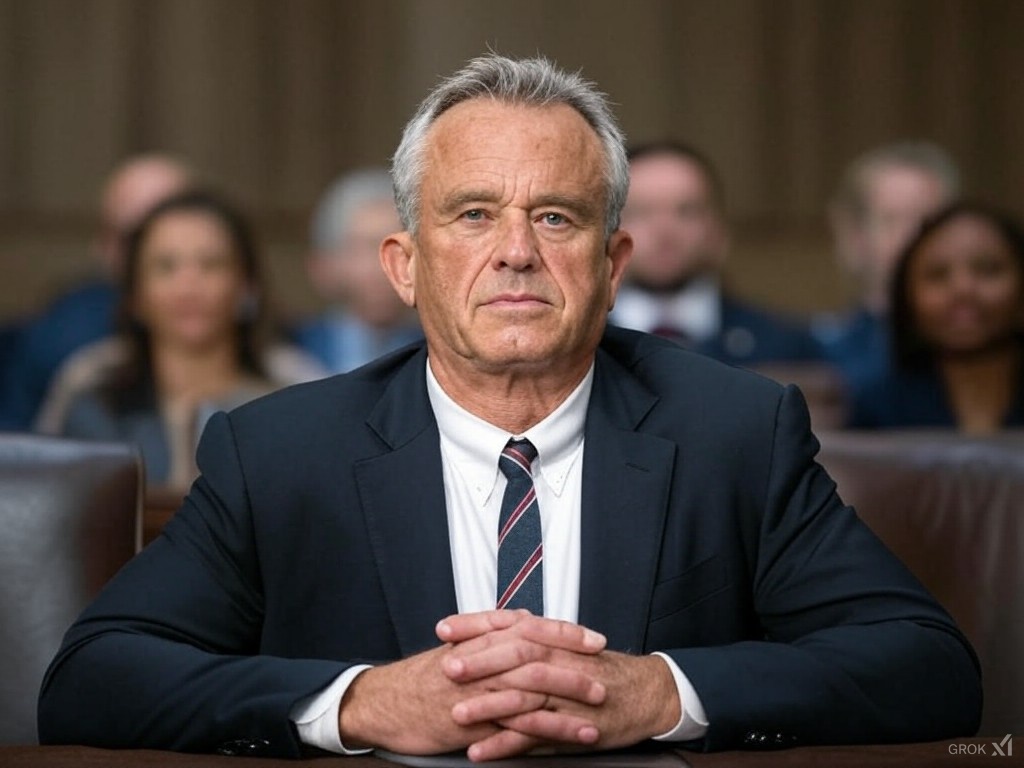Senate Hearings - Grandstanding instead of Grilling

31 January 2025
It's Senate Appointment Hearings Season and the nominees, including Robert F. Kennedy Jr., Tulsi Gabbard, and Kash Patel, faced a gauntlet of questions designed less for enlightenment and more for political theatre.
In the hallowed chambers of the Senate, where the air is thick with the scent of old leather and new legislation, the recent confirmation hearings for President Trump's Cabinet appointees unfolded with a predictability that would have made even the most astute political forecasters yawn.
The notion that these hearings might serve as a crucible for assessing the fitness of nominees for high office is increasingly seen as a quaint relic of a bygone era. Instead, they have morphed into something of a pantomime, where the script is known, the roles are fixed, and the outcome is as predetermined as the sun's daily arc. Kennedy, with his history of controversial stances on public health; Gabbard, with her eclectic political past; and Patel, with his unwavering loyalty to the former president, each took to the stage with the assurance of actors well-rehearsed in their parts.
The Senate's interrogation mirrored not so much an examination of policy or character but a performance art where senators, equipped with their allotted time, threw rhetorical questions like darts at a board where the bullseye was already marked. Kennedy navigated around his vaccine skepticism with the agility of a seasoned debater, Gabbard defended her past endorsements with diplomatic finesse, and Patel's answers seemed to confirm the fears of his detractors, yet his confirmation seemed as inevitable as the day's closing bell on Wall Street.
What if, in this age of digital democracy and instant feedback, the Senate adopted a more radical approach? Envision a system where nominees are not subjected to the traditional hearing but instead participate in a "Senate Confirmation Games." Here, they would face challenges ranging from navigating through their past statements in a trivia-style contest, to grappling with live public opinion polls, culminating in a "Truth or Dare" segment with the electorate. Such a system might reveal more about a nominee's mettle than the well-worn path of question-and-answer sessions.
The media, ever the chroniclers of this political drama, captured these moments, distilling them into digestible clips for public consumption. Senators, aware of their part in this grand production, delivered their lines with an eye towards the cameras, knowing their performances would resonate not just in the chamber but in living rooms across the nation. Yet, beneath this veneer of inquiry, the true purpose seemed less about vetting and more about validating pre-existing biases.
As the hearings drew to a close, the spectacle confirmed what many suspected: in the world of modern politics, the confirmation process is less about confirmation of suitability than it is about confirmation of political allegiance. The Senate, in its solemn duty to advise and consent, appeared to engage in a ritual more symbolic than substantive. If these hearings are indeed meant to uphold democratic principles, one might argue they have instead become an ironic commentary on democracy itself, where the punchline is that change is an illusion, and the show merely goes on.
